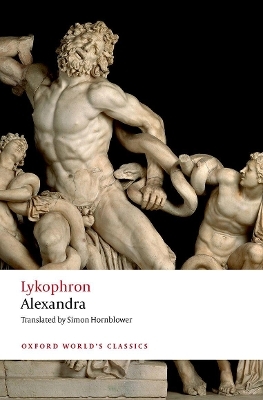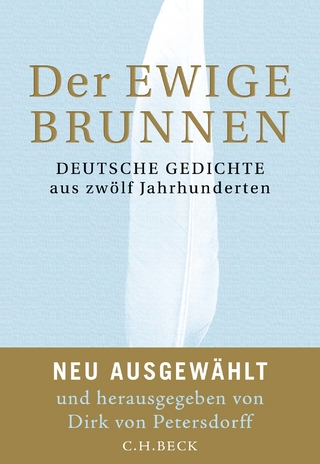
Lykophron: Alexandra
Seiten
2022
Oxford University Press (Verlag)
978-0-19-886334-2 (ISBN)
Oxford University Press (Verlag)
978-0-19-886334-2 (ISBN)
The Alexandra, attributed to Lykophron is a minor poetic masterpiece. At 1474 lines, it is one of the most important and notoriously difficult Greek poems dating from the Hellenistic period.
Traditionally ascribed to the early third-century BCE tragedian Lykophron, the Alexandra is a powerful Greek poem by an unknown author, probably written c. 190, when Rome had defeated Hannibal and the Carthaginians and was poised to humble the Seleukid king Antiochos III. The poem is an ingeniously constructed masterpiece, a generic mix with elements of tragedy, epic, and history.
Priam's beautiful daughter, the prophetic Kassandra, foresees her rape in Athena's temple by the hateful Greek warrior Ajax after Troy's fall, and warns of disastrous returns (nostoi) for all the Greek 'heroes'. But Troy will rise again as Rome, founded by Trojan refugees. Alexandra (another name for Kassandra), narrates these Mediterranean foundation myths, adopting a bitterly disillusioned female perspective, but culminating in prophecies of Roman rule over land and sea.
Traditionally ascribed to the early third-century BCE tragedian Lykophron, the Alexandra is a powerful Greek poem by an unknown author, probably written c. 190, when Rome had defeated Hannibal and the Carthaginians and was poised to humble the Seleukid king Antiochos III. The poem is an ingeniously constructed masterpiece, a generic mix with elements of tragedy, epic, and history.
Priam's beautiful daughter, the prophetic Kassandra, foresees her rape in Athena's temple by the hateful Greek warrior Ajax after Troy's fall, and warns of disastrous returns (nostoi) for all the Greek 'heroes'. But Troy will rise again as Rome, founded by Trojan refugees. Alexandra (another name for Kassandra), narrates these Mediterranean foundation myths, adopting a bitterly disillusioned female perspective, but culminating in prophecies of Roman rule over land and sea.
Simon Hornblower held teaching and research posts at Oxford and UCL until retirement in 2016. He is a Fellow of the British Academy. His books include a large-scale scholarly edition, with commentary, of Lykophron's Alexandra (2015), and a monograph, Lykophron's Alexandra, Rome, and the Hellenistic World (2018); both Oxford University Press. His most recent book is a co-authored edition of and commentary on Livy Book 22.
Preface and Acknowledgments
Note on the text and translation
Select Bibliography
Timeline
Synopsis of the Poem
Introduction
THE ALEXANDRA OF LYKOPHRON
Explanatory notes
Index
| Erscheinungsdatum | 27.06.2022 |
|---|---|
| Reihe/Serie | Oxford World's Classics |
| Verlagsort | Oxford |
| Sprache | englisch |
| Maße | 129 x 198 mm |
| Gewicht | 140 g |
| Themenwelt | Literatur ► Klassiker / Moderne Klassiker |
| Literatur ► Lyrik / Dramatik ► Lyrik / Gedichte | |
| Geisteswissenschaften ► Sprach- / Literaturwissenschaft ► Anglistik / Amerikanistik | |
| Geisteswissenschaften ► Sprach- / Literaturwissenschaft ► Literaturwissenschaft | |
| ISBN-10 | 0-19-886334-9 / 0198863349 |
| ISBN-13 | 978-0-19-886334-2 / 9780198863342 |
| Zustand | Neuware |
| Informationen gemäß Produktsicherheitsverordnung (GPSR) | |
| Haben Sie eine Frage zum Produkt? |
Mehr entdecken
aus dem Bereich
aus dem Bereich
Deutsche Gedichte aus zwölf Jahrhunderten
Buch | Hardcover (2023)
C.H.Beck (Verlag)
28,00 €
Eine Biographie | Aus bislang unbekannten Quellen und mit exklusivem …
Buch | Hardcover (2025)
Insel Verlag
28,00 €


